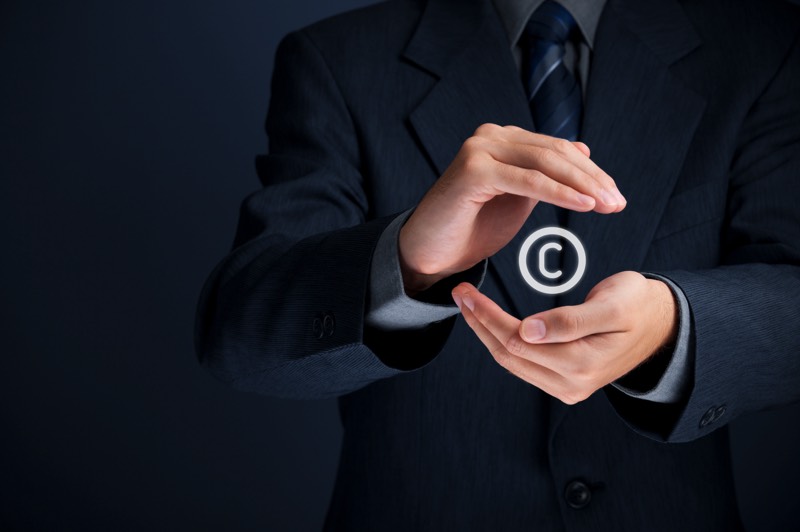LEGAL
Surrey’s Premier Lifestyle Magazine
Trade marks and intellectual property rights
Fiona Moss, an associate at Mundays LLP, provides an introduction to trade marks and intellectual property rights, detailing key points to take into consideration.

Photo copyright: Jakub Jirsak | 123rf.com
Protecting intellectual property has become more important than ever before and investment in intellectual property over the last few years has increased significantly. Many businesses are realising the value of their intellectual property and carrying out intellectual property audits and putting intellectual property strategies and policies in place.
A trade mark is a sign or symbol which can distinguish your organisation or your goods and/or services from those of another, e.g. your ‘brand’. Trade marks can be registered, which provides a tangible record of your asset. Think about the ‘value’ attributed to trade marks such as Virgin, Mercedes, Hilton, IBM and Coca Cola. Even relatively new businesses can quickly establish a strong market position through their trading and trade marks, i.e. Google, Amazon, Facebook and Uber, contributing huge value to the underlying business.
A trade mark is a sign or symbol which can distinguish your organisation or your goods and/or services from those of another, e.g. your ‘brand’. Trade marks can be registered, which provides a tangible record of your asset. Think about the ‘value’ attributed to trade marks such as Virgin, Mercedes, Hilton, IBM and Coca Cola. Even relatively new businesses can quickly establish a strong market position through their trading and trade marks, i.e. Google, Amazon, Facebook and Uber, contributing huge value to the underlying business.
Here are a few key points to consider when thinking about trade marks.
• Trade marks can be words, phrases, slogans, logos or pictures, sounds or jingles, shapes or colours, an aspect of packaging or a combination of some or all of these. The most effective trade marks are distinctive for the goods or services which they protect and you need to avoid descriptive names.
• There are some things you cannot register, for example, anything offensive, protected emblems, flags, anything which describes the goods or services you are selling or providing, 3D shapes which are typical of the goods you are selling, anything which is intended to deceive and anything which is an indicator of origin or which is customary in the relevant line of trade.
• Before deciding on a brand name or logo, you should run a clearance search to ensure that the name or logo you want is not already registered by someone else. This will reduce the risk of trade mark infringement and will help determine the registrability of the trade mark. You can do a basic check yourself by using a free service at https://www.gov.uk/search-for-trademark, but consider carrying out a full clearance search for which you should seek specialist advice.
• If you decide to register a trade mark, you will obtain an exclusive right to use the trade mark for the goods and services for which the trade mark is registered. Registering your trade mark may also help in preventing people using your trade mark without your permission and will make it easier for you to take legal action against them if they do. Registering your company name at Companies House or registering a domain name will not protect your trade mark to anywhere near the same extent as a trade mark.
• Trade marks are registered by the Intellectual Property Office in the UK and other entities worldwide. The process of registering a trade mark in the UK usually takes about three months, but can take longer if your application is opposed by someone else.
• Trade marks are territorial in nature, meaning that you are only protected in the territory in which you have registered the trade mark. When thinking about registering a trade mark, you should look at other territories in which you may want to expand in the future. If you are thinking of operating or selling your goods and services into Europe, you may want to consider registering an EU trade mark (EUTM).
• Trade marks must be renewed every 10 years and can theoretically last forever, provided renewal fees are paid. However, if you are not using the trade mark, your registration could be taken by someone else.
• Remember to keep your registrations up to date, e.g. if your logo has changed slightly over the years, make sure you have registered the latest version.
• Use the ® symbol and ™ symbol correctly. After you have registered your trade mark you can use the ® symbol. Before you have registered your trade mark, you can only use the ™ symbol, but this does not offer any protection. It is a criminal offence to use the ® symbol if you have not registered your trade mark.
• If someone else is using your registered trade mark, you should consider writing to them and requiring them to stop doing so, but you should investigate fully first and take appropriate legal advice on the best course of action in the specific circumstances.
Remember that a registered trade mark is an asset which adds real value to your business and which you can sell, licence or franchise to someone else. Intellectual property assets can also raise the value of your business in a sale or acquisition.
Above all, take specialist legal advice to ensure your brand is properly protected.
• Trade marks can be words, phrases, slogans, logos or pictures, sounds or jingles, shapes or colours, an aspect of packaging or a combination of some or all of these. The most effective trade marks are distinctive for the goods or services which they protect and you need to avoid descriptive names.
• There are some things you cannot register, for example, anything offensive, protected emblems, flags, anything which describes the goods or services you are selling or providing, 3D shapes which are typical of the goods you are selling, anything which is intended to deceive and anything which is an indicator of origin or which is customary in the relevant line of trade.
• Before deciding on a brand name or logo, you should run a clearance search to ensure that the name or logo you want is not already registered by someone else. This will reduce the risk of trade mark infringement and will help determine the registrability of the trade mark. You can do a basic check yourself by using a free service at https://www.gov.uk/search-for-trademark, but consider carrying out a full clearance search for which you should seek specialist advice.
• If you decide to register a trade mark, you will obtain an exclusive right to use the trade mark for the goods and services for which the trade mark is registered. Registering your trade mark may also help in preventing people using your trade mark without your permission and will make it easier for you to take legal action against them if they do. Registering your company name at Companies House or registering a domain name will not protect your trade mark to anywhere near the same extent as a trade mark.
• Trade marks are registered by the Intellectual Property Office in the UK and other entities worldwide. The process of registering a trade mark in the UK usually takes about three months, but can take longer if your application is opposed by someone else.
• Trade marks are territorial in nature, meaning that you are only protected in the territory in which you have registered the trade mark. When thinking about registering a trade mark, you should look at other territories in which you may want to expand in the future. If you are thinking of operating or selling your goods and services into Europe, you may want to consider registering an EU trade mark (EUTM).
• Trade marks must be renewed every 10 years and can theoretically last forever, provided renewal fees are paid. However, if you are not using the trade mark, your registration could be taken by someone else.
• Remember to keep your registrations up to date, e.g. if your logo has changed slightly over the years, make sure you have registered the latest version.
• Use the ® symbol and ™ symbol correctly. After you have registered your trade mark you can use the ® symbol. Before you have registered your trade mark, you can only use the ™ symbol, but this does not offer any protection. It is a criminal offence to use the ® symbol if you have not registered your trade mark.
• If someone else is using your registered trade mark, you should consider writing to them and requiring them to stop doing so, but you should investigate fully first and take appropriate legal advice on the best course of action in the specific circumstances.
Remember that a registered trade mark is an asset which adds real value to your business and which you can sell, licence or franchise to someone else. Intellectual property assets can also raise the value of your business in a sale or acquisition.
Above all, take specialist legal advice to ensure your brand is properly protected.
Copyright: how to protect intellectual property
• The law on copyright is set out in the Copyright, Designs and Patents Act 1988.
• Copyright protects the expression of ideas, but not the ideas themselves, e.g. the idea must be expressed in a permanent form. It is intended to give the copyright owner the right to exclusively control and exploit the works (e.g. copy, issue copies, lend, rent, show, play and adapt them).
• Copyright protects original literary, dramatic, musical and artistic works, films, photographs, sound recordings and broadcasts, software and typographical arrangements.
• Copyright exists automatically when something is written down, drawn, painted or recorded, provided that the work is not copied and is sufficiently original. There is no formal registration process.
• How long copyright lasts depends on the type of work created, so you will need to take specialist advice. However, for most works, copyright lasts for the life of the creator, plus 70 years from the end of the calendar year of his or her death.
• You can mark your work with a copyright notice to ensure that others know the works are protected by copyright, e.g. © Copyright [author/owner’s name] [year]. It is also common to add ‘All rights reserved’.
• Copyright is a property right and it may be licensed or transferred by assignment. Where copyright is licensed, the licensor retains ownership of the copyright, but grants a licence to the licensee to use the works in accordance with the terms of the licence. There are different types of licence (e.g. sole, exclusive and non-exclusive) and different requirements depending on the nature of the licence, so it is recommended that you take specialist advice if you are thinking about granting or taking a licence of copyright.
• An assignment of copyright transfers ownership of copyright from the assignor to the assignee. An assignment must be in writing and signed by or on behalf of the assignor.
• Where literary, dramatic, musical, artistic and film works are created by an employee in the course of his/her employment, the employer will be the first owner of the copyright in the works (subject to any agreement to the contrary in the individual’s employment contract). There are different rules for sound recordings and broadcasts.
• Where works are created by a third party, e.g. a contractor or consultant, copyright in such works will be owned by the third party who created the works (even where they have been commissioned and paid to create the works). It is therefore very important to agree who will own copyright before any works are created and to obtain a suitable licence or assignment of copyright (where required). This can be particularly important if you are then required to assign or licence the work on to your own customer or client.
• Think about having a copyright policy, which sets out your business’s approach to the maintenance, protection and exploitation of copyright. It is also important for those within your business to be aware of and respect third party rights to avoid a claim being brought against your business for infringement of a third party’s copyright. This can be incorporated into your copyright policy informing staff of the potential dangers and the ways they can be avoided.
• The law on copyright is set out in the Copyright, Designs and Patents Act 1988.
• Copyright protects the expression of ideas, but not the ideas themselves, e.g. the idea must be expressed in a permanent form. It is intended to give the copyright owner the right to exclusively control and exploit the works (e.g. copy, issue copies, lend, rent, show, play and adapt them).
• Copyright protects original literary, dramatic, musical and artistic works, films, photographs, sound recordings and broadcasts, software and typographical arrangements.
• Copyright exists automatically when something is written down, drawn, painted or recorded, provided that the work is not copied and is sufficiently original. There is no formal registration process.
• How long copyright lasts depends on the type of work created, so you will need to take specialist advice. However, for most works, copyright lasts for the life of the creator, plus 70 years from the end of the calendar year of his or her death.
• You can mark your work with a copyright notice to ensure that others know the works are protected by copyright, e.g. © Copyright [author/owner’s name] [year]. It is also common to add ‘All rights reserved’.
• Copyright is a property right and it may be licensed or transferred by assignment. Where copyright is licensed, the licensor retains ownership of the copyright, but grants a licence to the licensee to use the works in accordance with the terms of the licence. There are different types of licence (e.g. sole, exclusive and non-exclusive) and different requirements depending on the nature of the licence, so it is recommended that you take specialist advice if you are thinking about granting or taking a licence of copyright.
• An assignment of copyright transfers ownership of copyright from the assignor to the assignee. An assignment must be in writing and signed by or on behalf of the assignor.
• Where literary, dramatic, musical, artistic and film works are created by an employee in the course of his/her employment, the employer will be the first owner of the copyright in the works (subject to any agreement to the contrary in the individual’s employment contract). There are different rules for sound recordings and broadcasts.
• Where works are created by a third party, e.g. a contractor or consultant, copyright in such works will be owned by the third party who created the works (even where they have been commissioned and paid to create the works). It is therefore very important to agree who will own copyright before any works are created and to obtain a suitable licence or assignment of copyright (where required). This can be particularly important if you are then required to assign or licence the work on to your own customer or client.
• Think about having a copyright policy, which sets out your business’s approach to the maintenance, protection and exploitation of copyright. It is also important for those within your business to be aware of and respect third party rights to avoid a claim being brought against your business for infringement of a third party’s copyright. This can be incorporated into your copyright policy informing staff of the potential dangers and the ways they can be avoided.
essence info
Mundays LLPCedar House, 78 Portsmouth Road, Cobham KT11 1AN
Telephone: 01932 590500
Website: www.mundays.co.uk
Fiona Moss specialises in corporate and commercial law and is a franchise specialist. She deals with acquisitions and disposals, joint venture/shareholder arrangements and investment as well as general corporate governance and compliance and procedural issues. On the commercial side Fiona covers general commercial agreements, distribution, licensing, consultancy and is a franchise specialist acting for franchisors and franchisees alike. Fiona can be contacted on 01932 590611 or fiona.moss@mundays.co.uk

